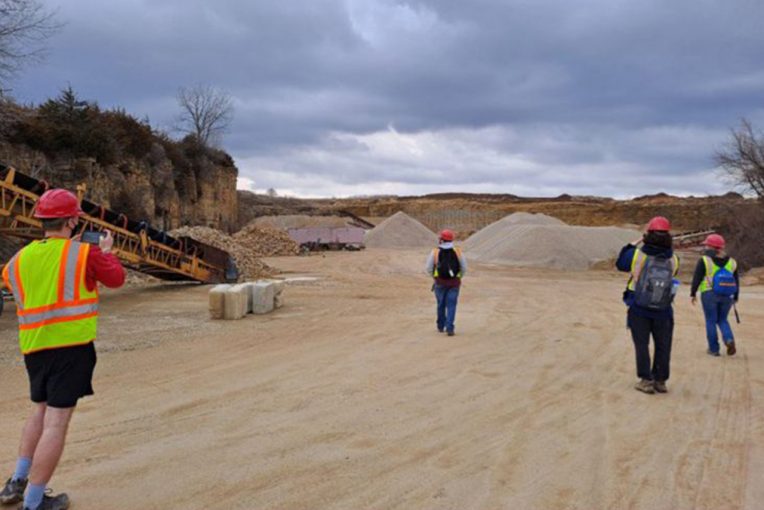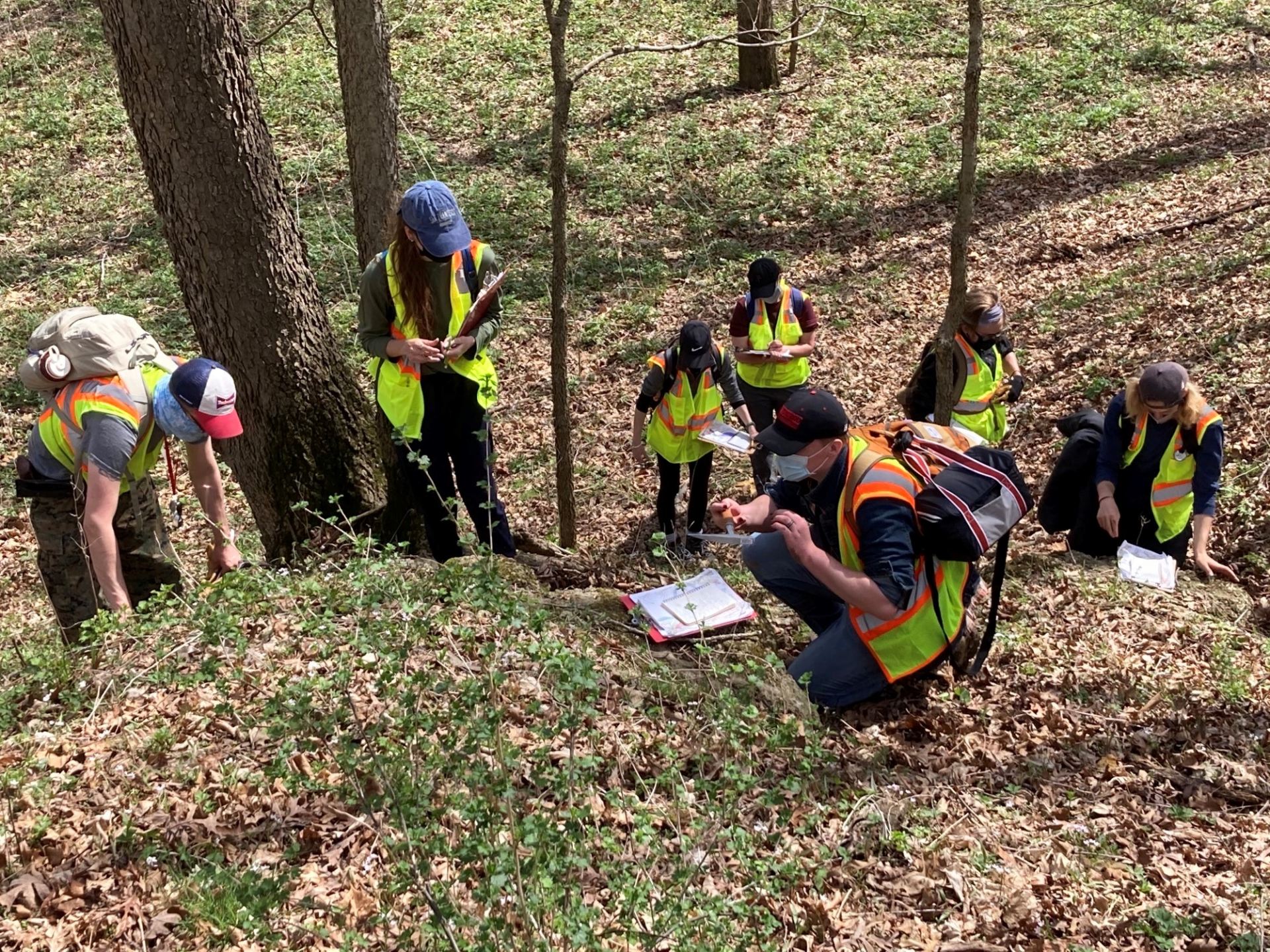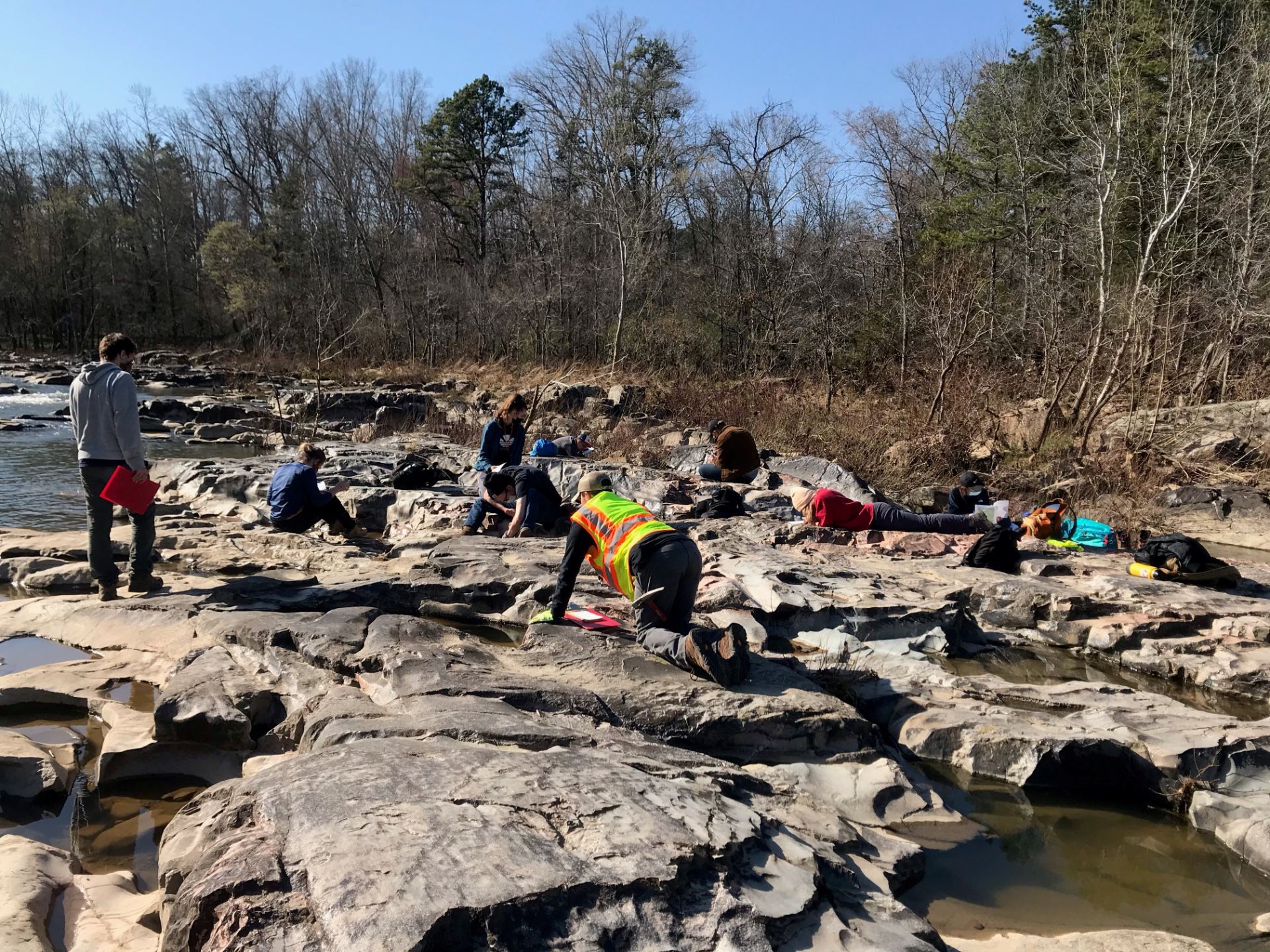This spring, students in the Department of Geography, Geology, and the Environment have gained hands-on experience in the field, safely embarking on faculty-led trips across the Midwest.
Associate Professor of Geology Dr. Lisa Tranel is one of three professors who led students on course trips this semester. The weekend of March 27–28, Tranel took students from her GEO 382: Glacial and Quaternary Geology class to analyze the landscape of northwestern Illinois.
“This trip is part of a project that we’ve been working on in class throughout the entire semester,” said Tranel. “The students selected their goals and what they were most interested in looking at.”
Throughout the course, the students have designed their projects in order to collect data and observations from field sites, complete analyses of landscapes using maps and digital elevation data, and collect samples to examine back on campus. The projects are collaborative, enabling students who opted not to go on the trip to still contribute remotely. Students and faculty who went on the trip followed coronavirus (COVID-19) safety protocols such as wearing face coverings.
It was the first course trip for geography major Logan Chapman. “The big reason I wanted to go on this trip was gaining that field experience,” said Chapman, a senior from Canton. “Personally, I work much better hands-on. It’s a whole other experience to be able to actually go out in the field; having that chance to get out for two days is wonderful.”
On the other hand, classmate Jackie Epperson had been on multiple trips with Tranel for courses in previous semesters. However, the latest trip was still a unique experience for her.
“This one was unique because it was my first trip since the pandemic started, and I was very excited for it,” said Epperson, a senior geology major from Blue Mound. “I had also never been to the Driftless region of northwestern Illinois before, and it was an amazing place with great geology.”
The focal point of the trip was visiting Apple River Canyon State Park, located near the Wisconsin border. On the way there, students also visited an outcrop on Rock Creek near Danvers as well as the Canyon Camp and Fischer Excavating Quarry, both located in Stockton.
Tranel said Apple River Canyon State Park provided a perfect learning environment for her students.

“Part of the reason why we wanted to go there was because there are rivers or streams flowing through, and as parks are areas that are used for outdoor recreation, they don’t necessarily have quite as much change to them as natural areas along the streams,” said Tranel. “We wanted to look at weathering and erosion processes along the stream channels while thinking about different Quaternary environments and processes.”
Students carried out tasks such as testing rocks for weathering, collecting sediment and rock samples, and mapping using high-resolution data.
“Prior to the trip, we used Google Earth to pinpoint where exactly we wanted to go on the trip,” said Chapman. “Then, we were using the contour gauge to check the bedrock weathering over time.”
As a geography student nearing graduation, the trip provided Chapman an invaluable opportunity for career preparation.
“I gained a lot of field data collection experience, and going into GIS (geographic information system), that’s really valuable for me,” said Chapman. “Using the technology and knowing how to apply that field data can be very useful.”
Epperson, who is also preparing to graduate this spring, echoed the importance of the trip.
“This trip prepared me for future research in the field because now I know how to identify and analyze glacial sediments and features,” said Epperson. “This is crucial in understanding the regional geology of any place that was glaciated in the past.”
In addition to Tranel’s group, Assistant Professor of Geology Dr. Tenley Banik and Distinguished Professor of Geology Dr. David Malone also took students on course trips in the past few weeks. Banik’s students traveled to the St. Francois Mountains in Missouri, while Malone and his eight students visited a site near Marietta in western Illinois.
While hands-on learning experiences are always valuable, Tranel emphasizes that it is a bonus for students to learn how to safely continue working in-person during the pandemic.
“Scientists have been continuously working throughout the pandemic; the pandemic actually did not cause very many geoscientists to stop working,” said Tranel. “A lot of them had to shift any type of office work to work from home, but those geoscientists who had a lot of work to do in the field are actually still doing a lot of that work in the field. We were really prepared for working safely in the field, which is why it was useful and beneficial for students to gain that experience.”



